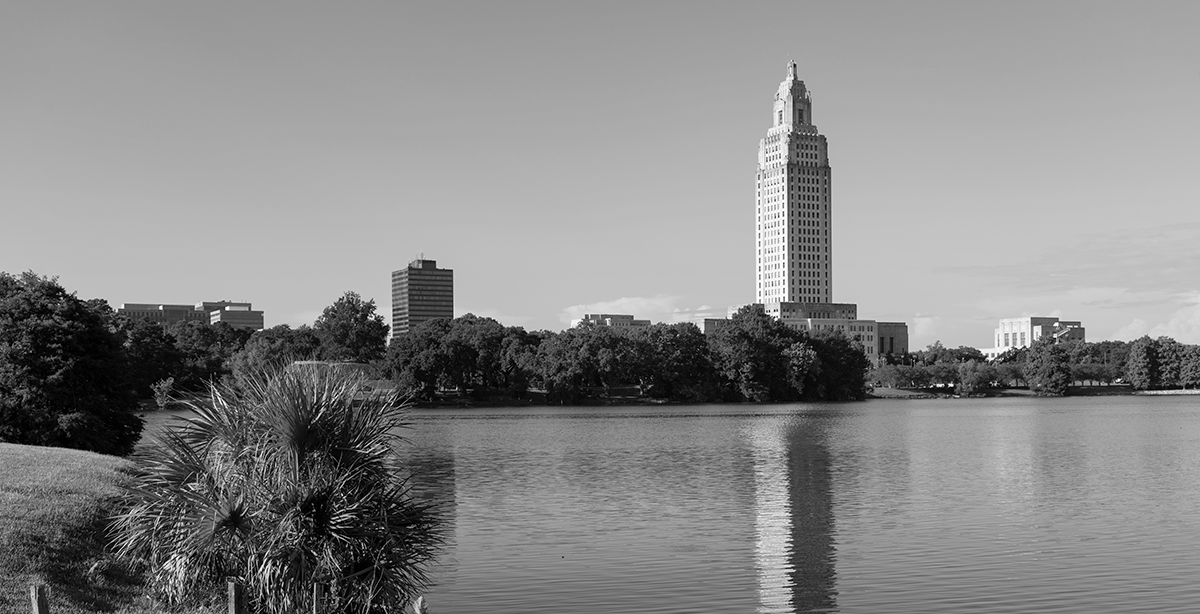On Thursday, June 12, the Louisiana Legislature wrapped up its 2025 session after 59 days of legislative activity. Over the course of the session, lawmakers introduced 696 House bills, 248 Senate bills, and 750 resolutions. To date, Governor Jeff Landry (R) has signed 462 bills into law and vetoed 18. Here’s a look at what you may have missed:
Drone Defense Law
Governor Jeff Landry signed House Bill 261 into law on June 8, marking a significant step forward in drone regulation by granting state and local law enforcement the authority to neutralize unmanned drones operating within Louisiana. This groundbreaking legislation is the first of its kind in the nation, giving the state a unique position in drone defense. Sponsored by Representative Jay Galle (R), the law empowers officers to use legal and safe methods—such as jamming, hacking, or physically capturing drones—to stop any unmanned aircraft deemed a threat to public safety. Known as the “We Will Act” Act, this legislation could set a national precedent because, until now, enforcement of drone activity has largely been handled by federal agencies. Governor Landry emphasized the importance of the law, stating, “This law puts Louisiana on the front lines of drone defense.” Additionally, the law prohibits drones from flying over parades and parade routes, with specific exceptions made for authorized film and television productions. The bill passed the Louisiana legislature unanimously, reflecting broad bipartisan support.
Supporters of the law view it as a proactive measure in response to growing security concerns, especially after reports of unidentified drones near sensitive locations such as Entergy’s River Bend Station nuclear facility. With drone technology becoming increasingly accessible, officials believe this legislation is crucial to preventing potential threats before they materialize. House Bill 261 will officially take effect on August 1.
Expanding Lawsuits Against Abortion Facilitators
Louisiana lawmakers passed House Bill 575, which was then signed by Governor Jeff Landry on June 20. The law allows a woman who has had an abortion to sue anyone who “knowingly performed or substantially facilitated” the abortion, including out-of-state individuals or entities involved in providing abortion-inducing drugs, with a minimum of $100,000 in damages. “Substantially facilitated” covers activities like prescribing, dispensing, selling, or coordinating the sale of abortion pills in Louisiana. While the law exempts licensed Louisiana doctors and pharmacists following regulations, it raises concerns about privacy, legal vagueness, and the potential effect on medical providers. It also grants the state Attorney General access to medical records to distinguish abortions from miscarriages.
House Bill 575 was created partly in response to a criminal case against a New York doctor accused of prescribing abortion pills to a Louisiana minor and reflects ongoing tensions between states over abortion access after Roe v. Wade was overturned. Critics, including reproductive rights advocates and some lawmakers, argue the law unnecessarily restricts women’s healthcare and could discourage doctors from practicing in the state. Supporters believe that it’s a necessary tool to hold out-of-state providers accountable and send a message that abortion-inducing drugs are unwelcome in the state. The law will go into effect on August 1.
Budget
The Louisiana Legislature has approved a $51 billion state budget, with roughly half of the funding coming from federal sources. Lawmakers allocated $44 million to support school vouchers for 5,600 students attending private schools through an existing program launched under former Governor Bobby Jindal. The Legislature rejected Governor Jeff Landry’s request for an additional $50 million to expand the program to 5,300 more students. The budget also includes several hundred million dollars in federal funding to increase Medicaid reimbursement rates for doctors and hospitals. Governor Landry has asked the federal government to allow more providers to be paid rates closer to those offered by private insurers. If approved, Louisiana could receive up to $500 million in additional funds for the next fiscal year—and potentially more to retroactively cover past payments.. Key priorities included for the budget included:
- Tax Credits ($8,000,000 for the Research and Development Tax Credit) and Infrastructure Improvements (1.2 billion)
- Medicaid ($901,704,500 to provide medical insurance for eligible Medicaid and CHIP enrollees through the payment of premiums to other entities)
- Smoking ($1,535,754 for Smoking Cessation) and School Vouchers ($44 million)
- Behavioral Health Services ($31 million to the Private Providers Program for an increase in reimbursement rates for specialized behavioral health services for substance abuse disorder treatment)
Looking Ahead
July 2 was the final day for Governor Jeff Landry (R) to sign or veto bills passed during the legislative session. At the close of Louisiana’s 2025 legislative session, lawmakers rejected HB 358, a strict proposal backed by Governor Jeff Landry to ban companies from owning both pharmacies and pharmacy benefit managers (PBMs), opting instead for a compromise bill that boosts PBM transparency and consumer savings. Landry has threatened a special session for later this year to address PBMs in the state. Such a session has not yet been scheduled.
To stay up to date with Louisiana interim activity, please reach out to Stateside.
